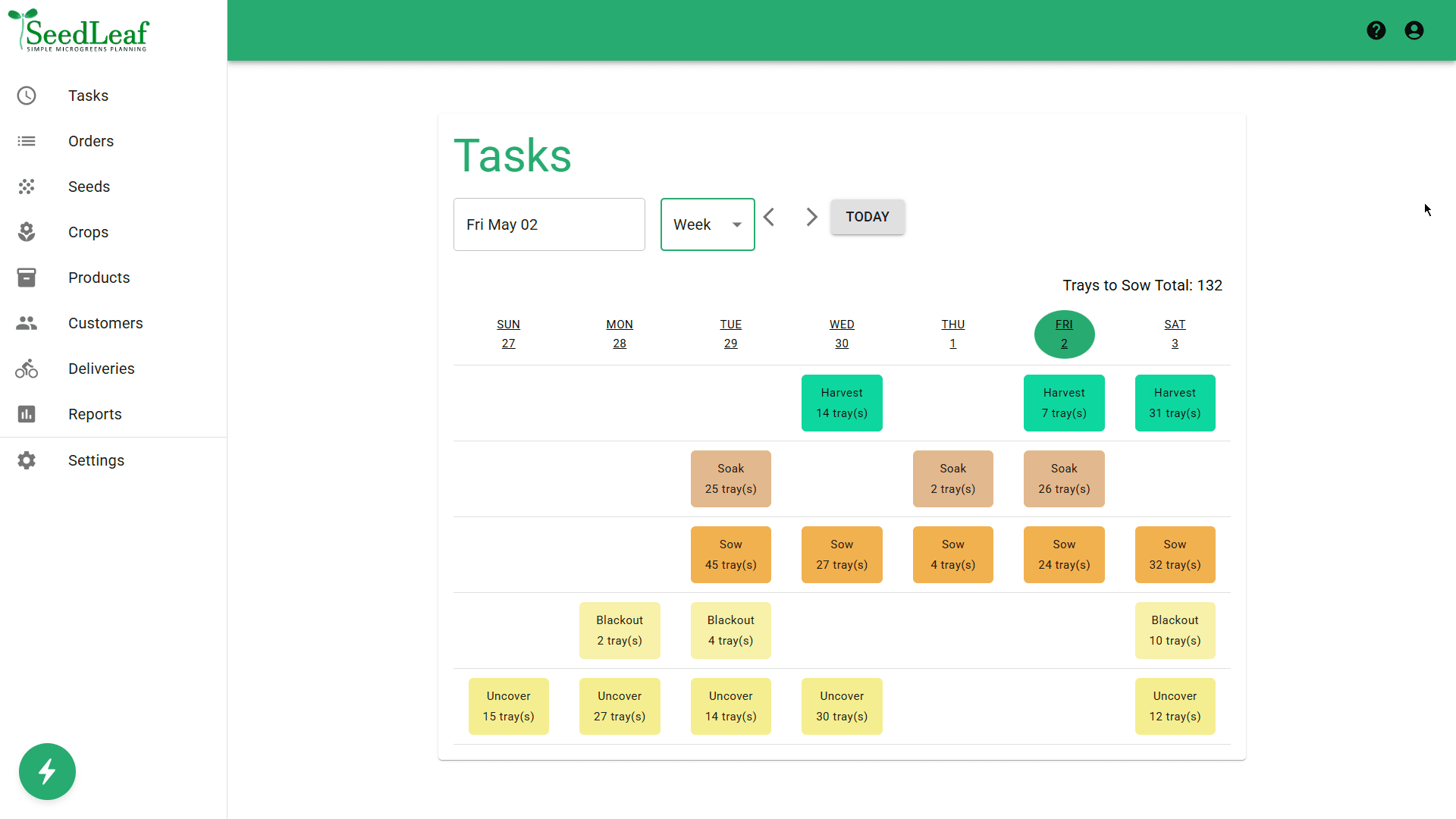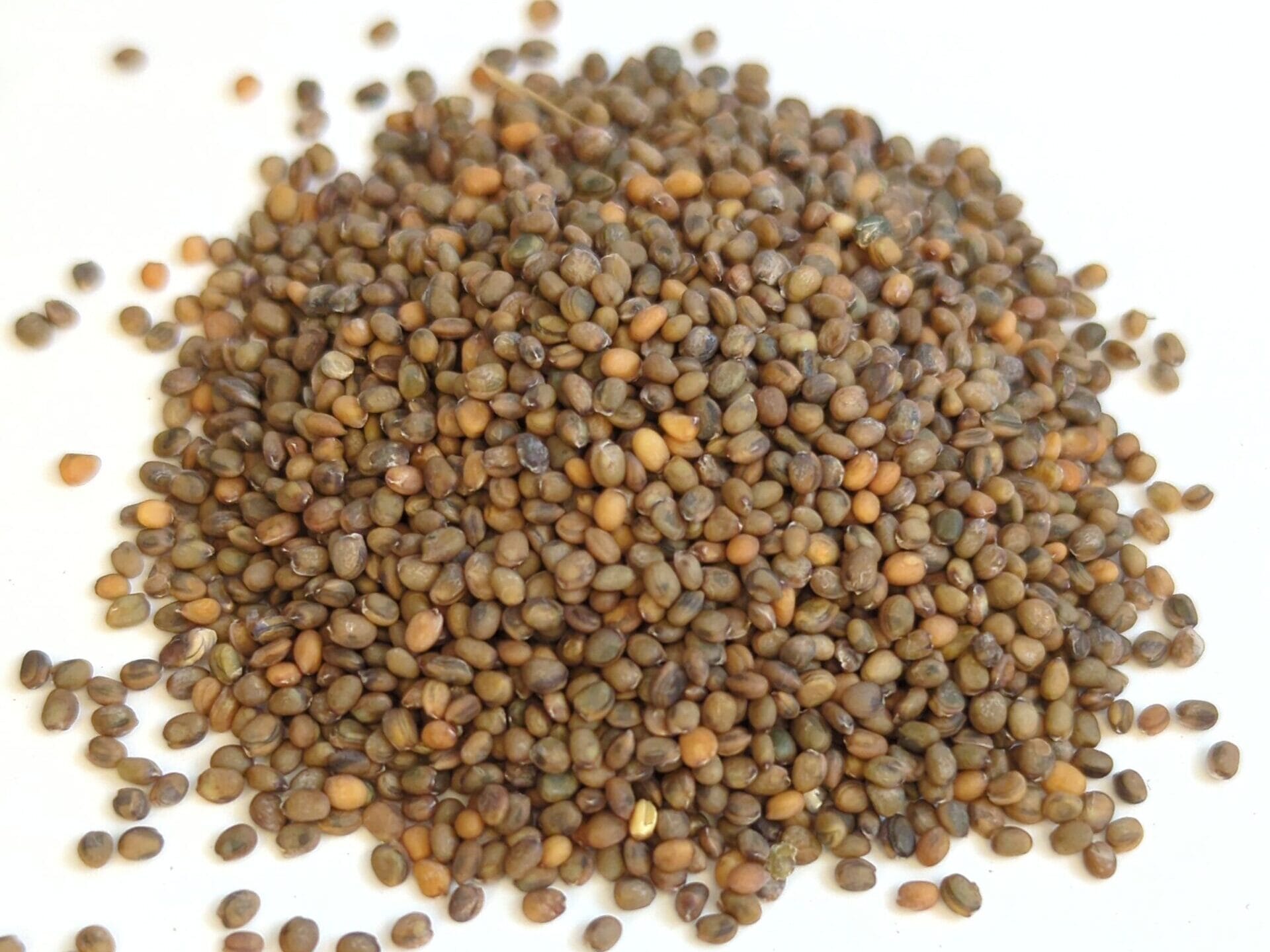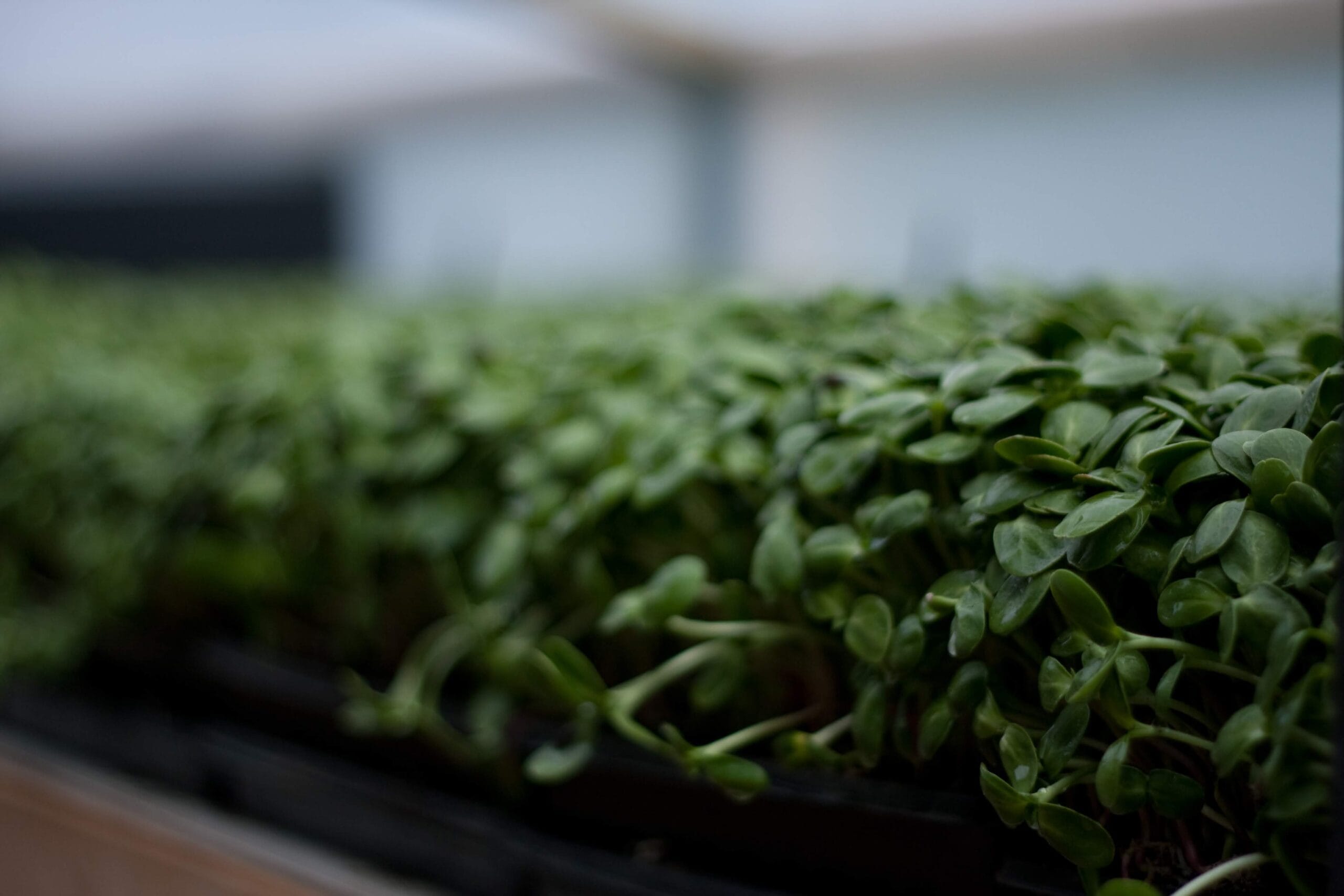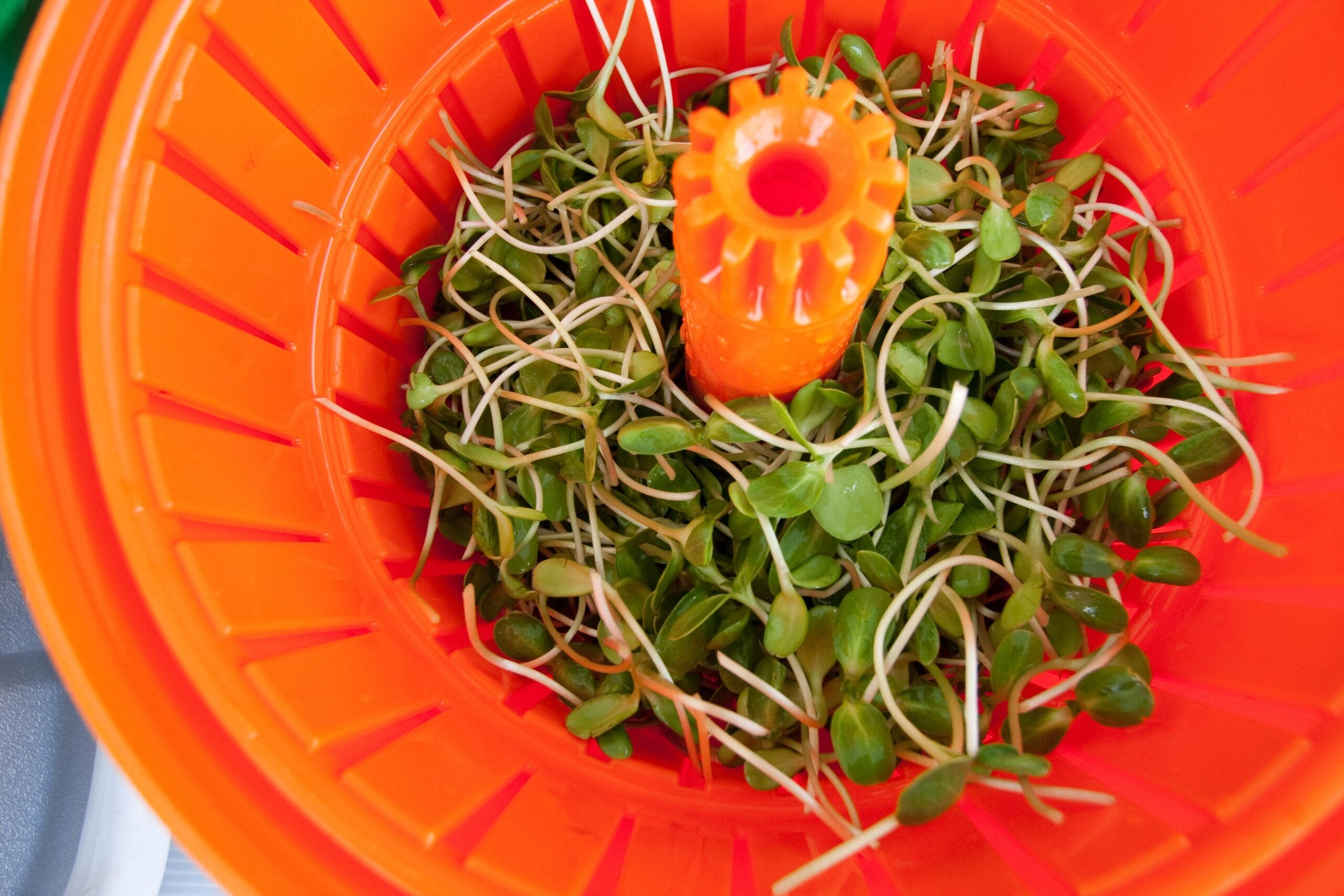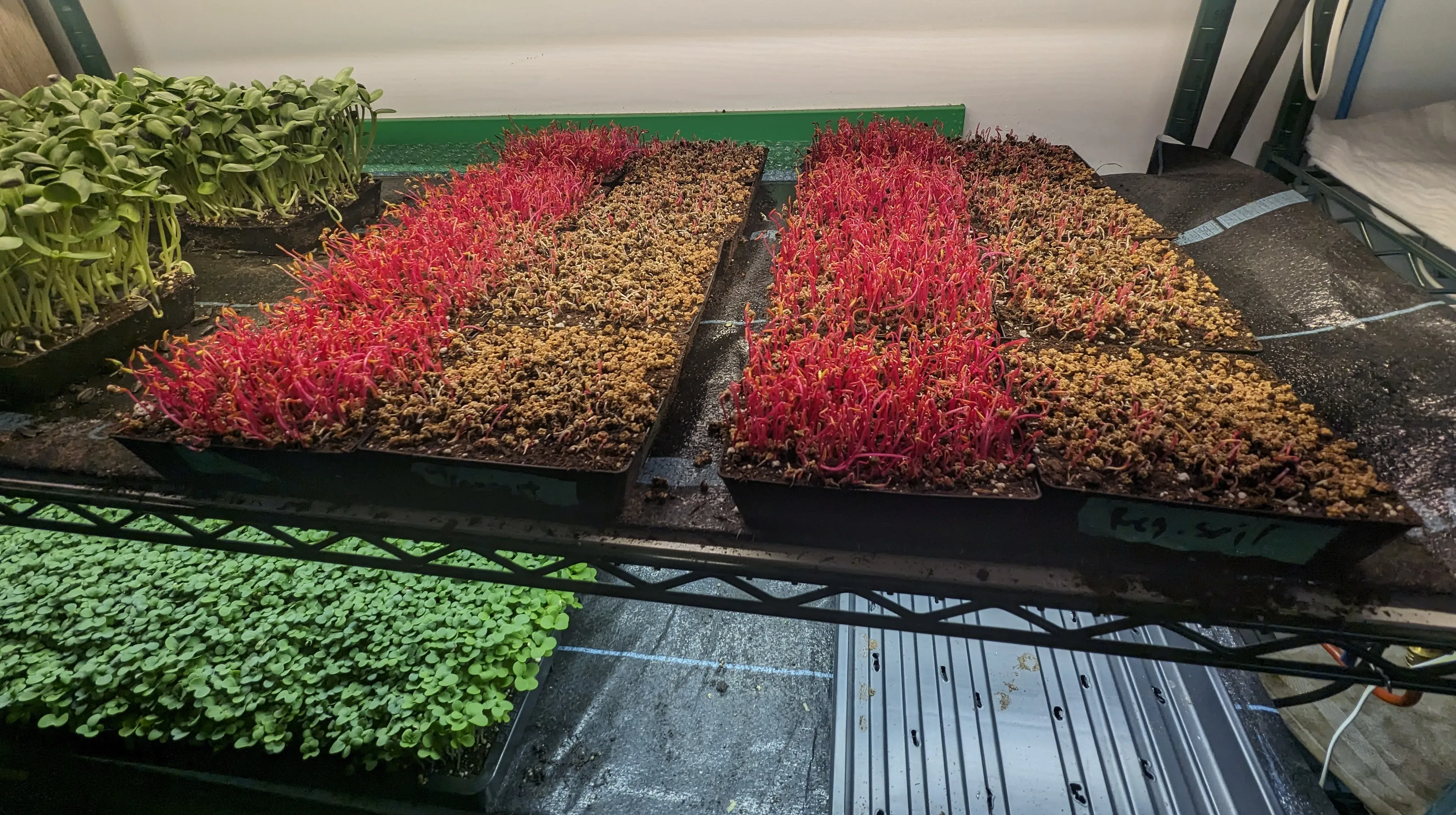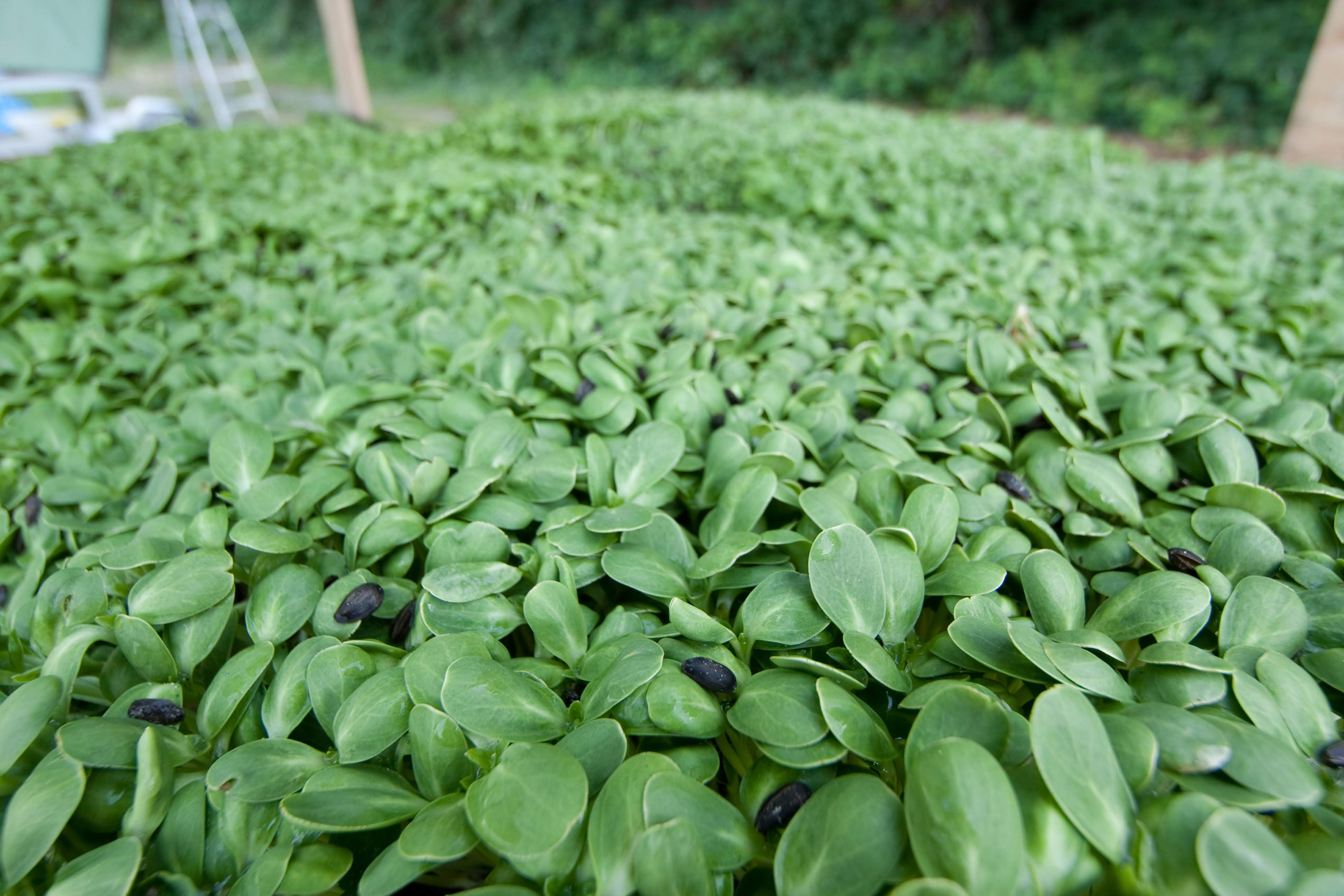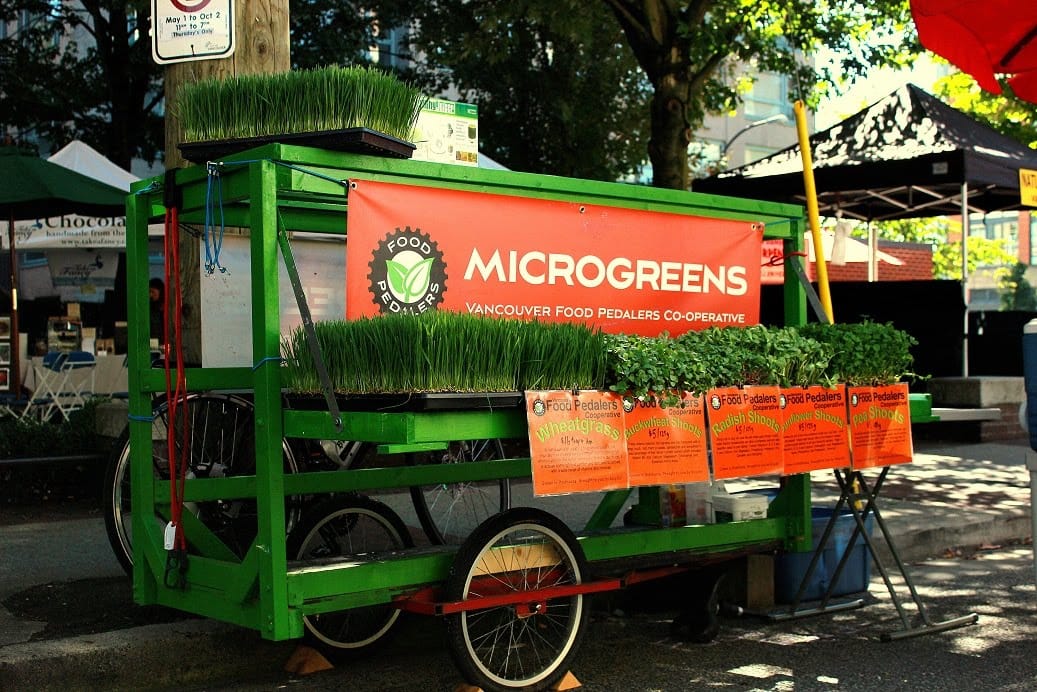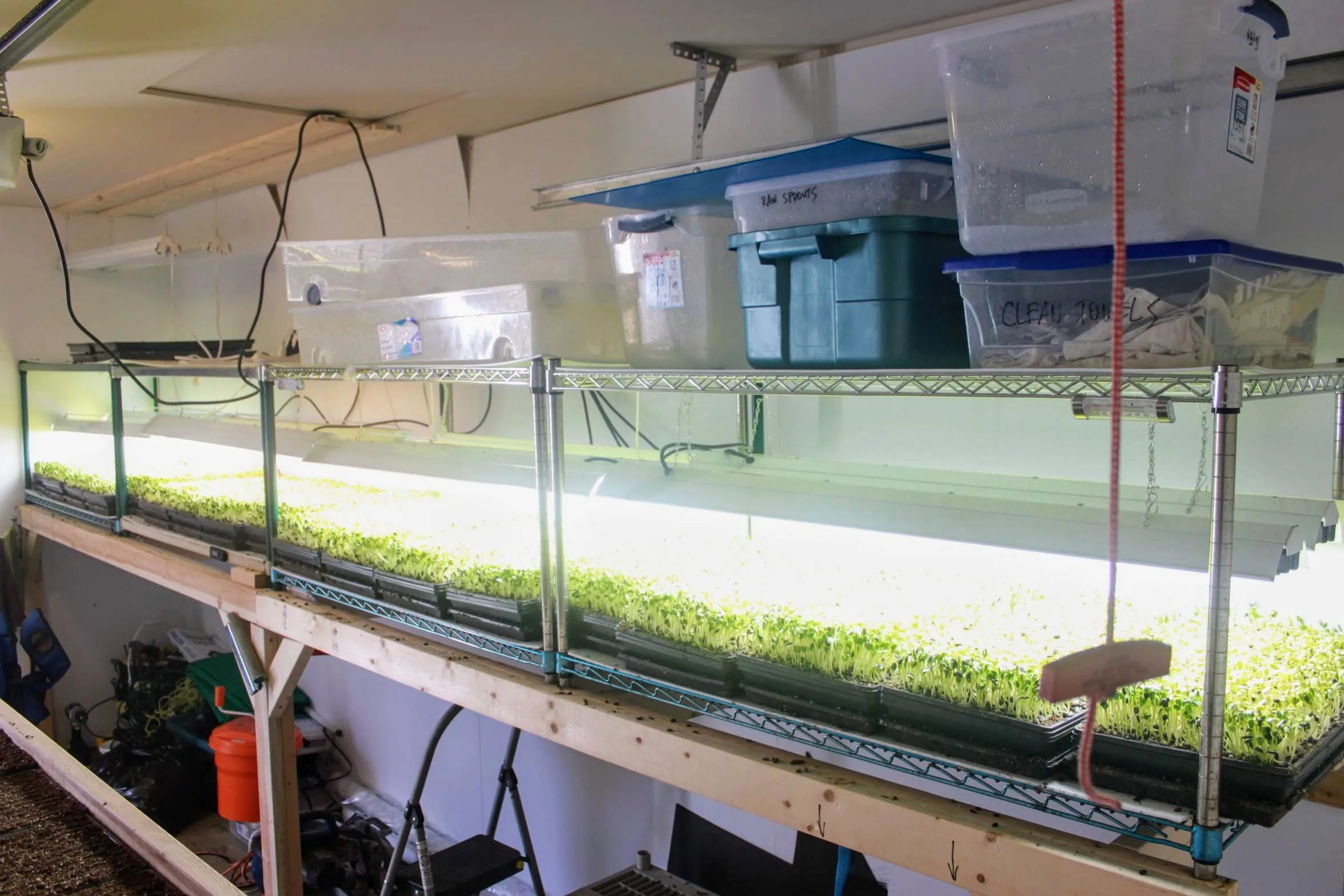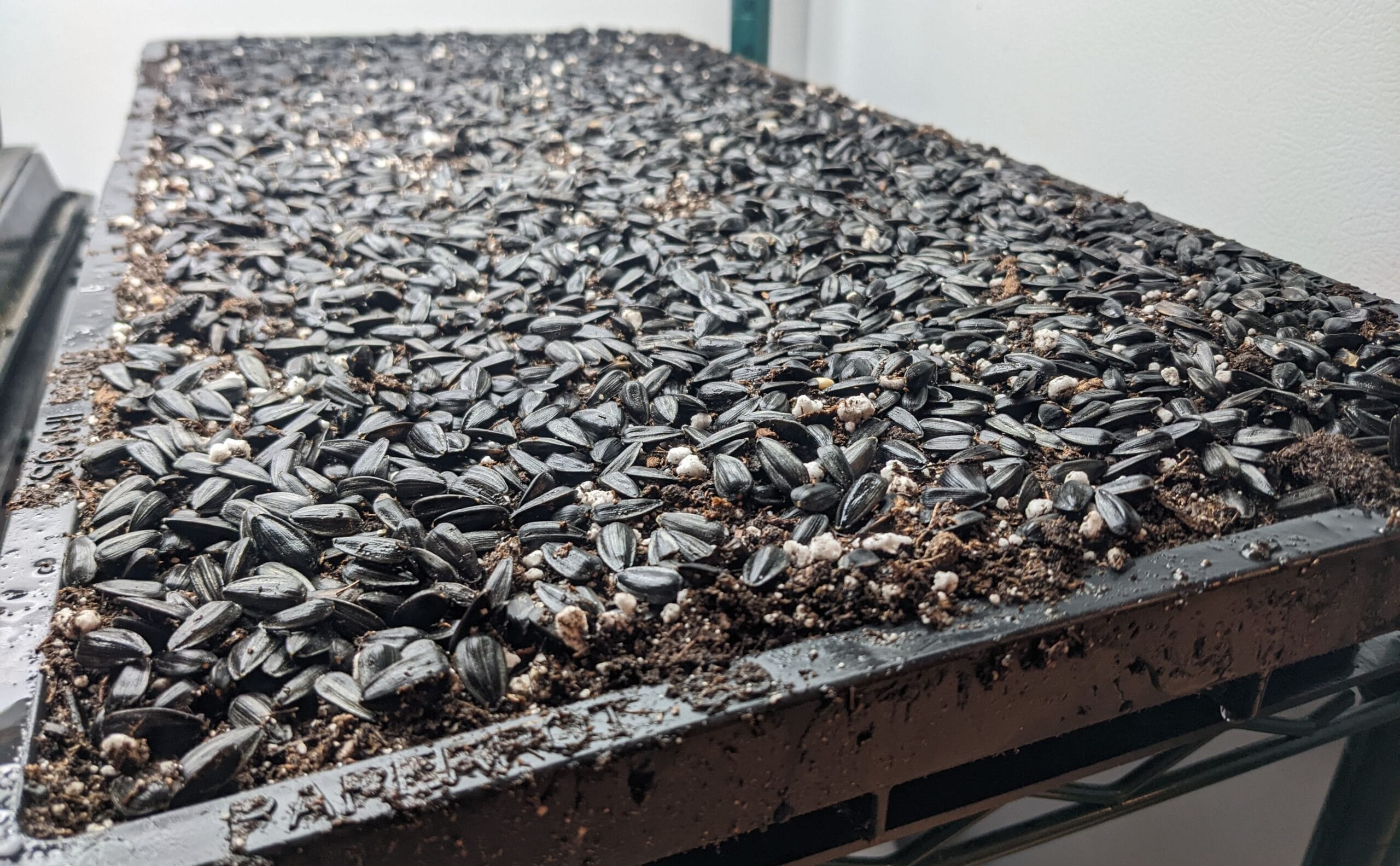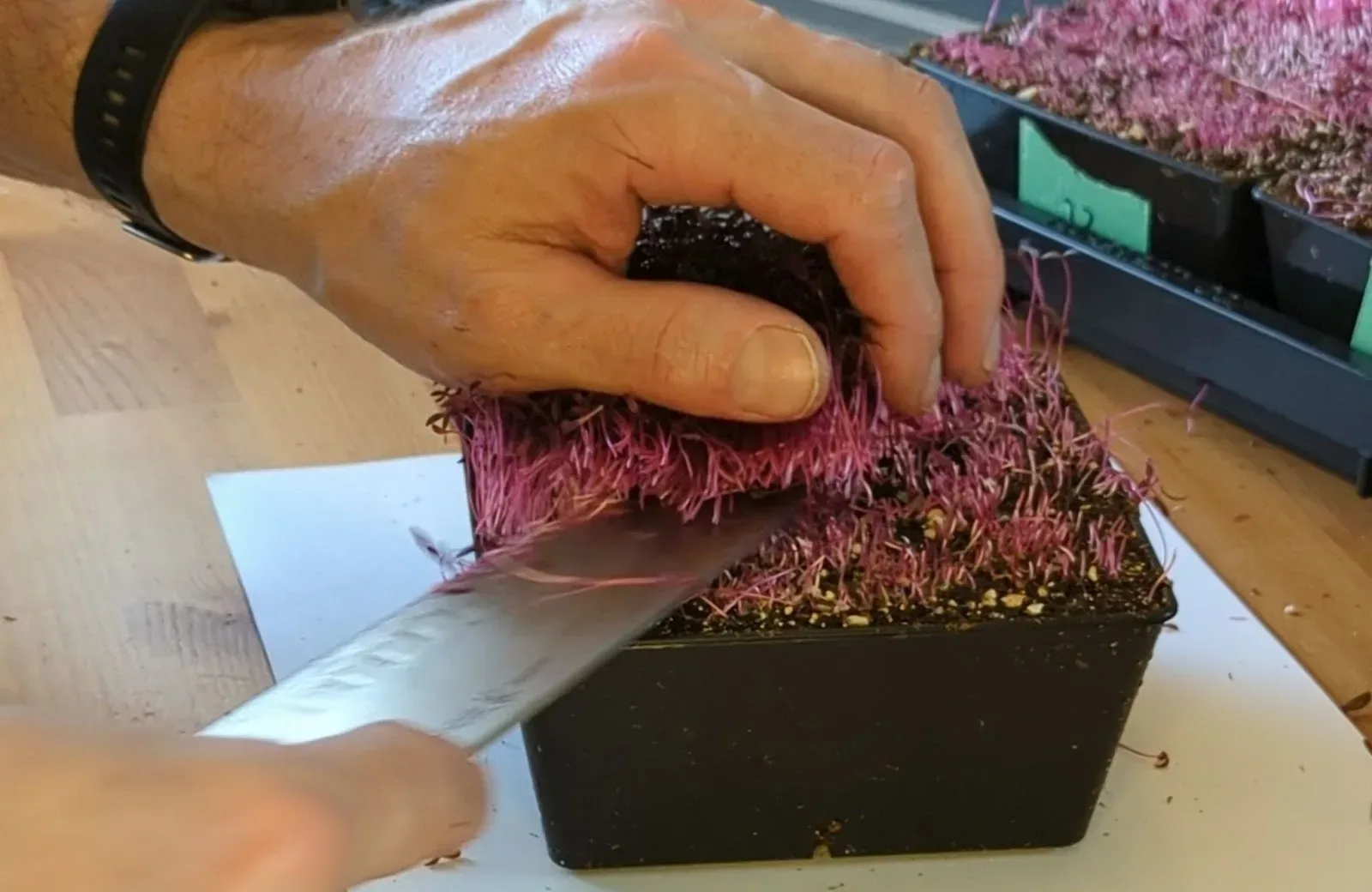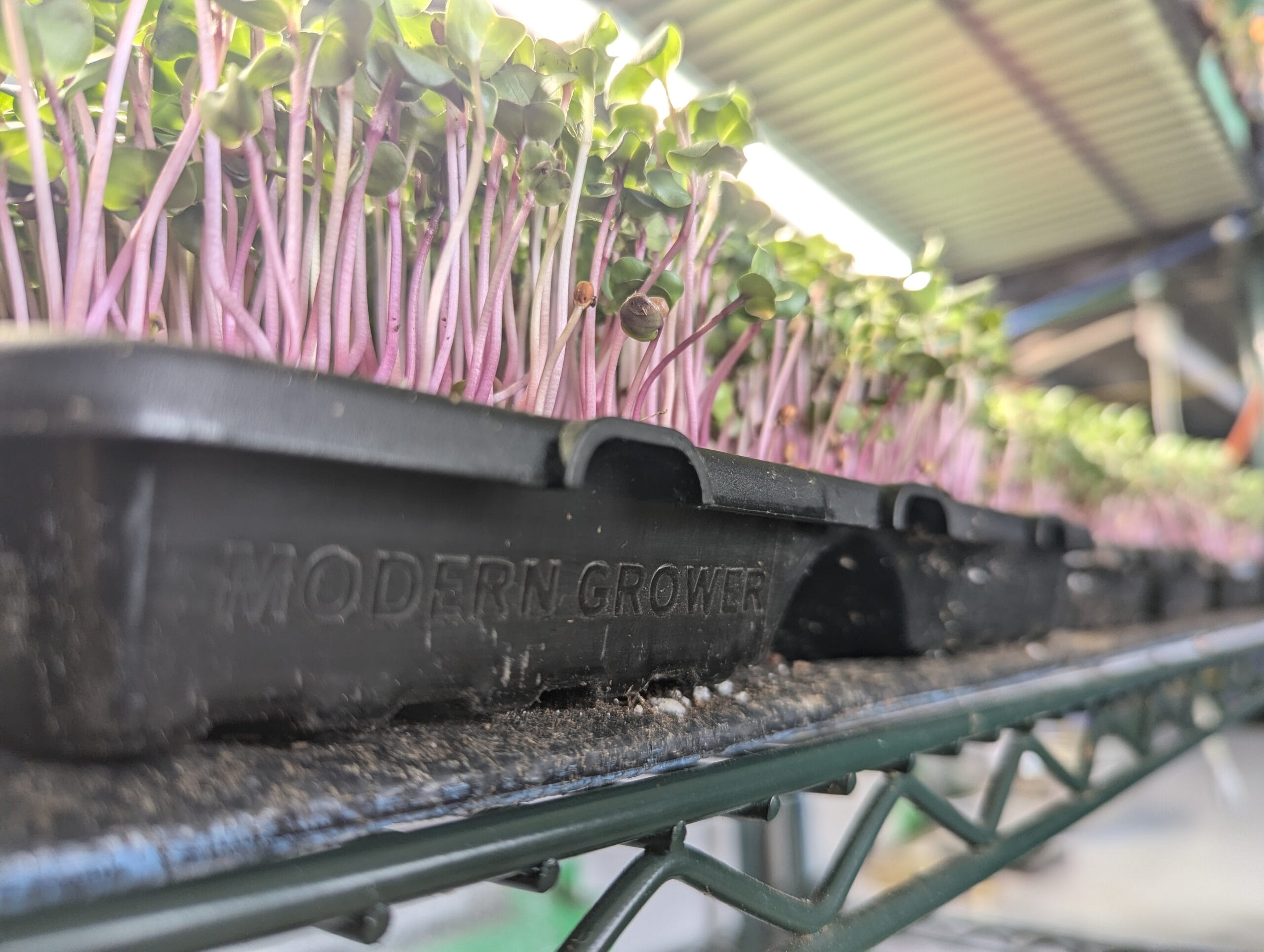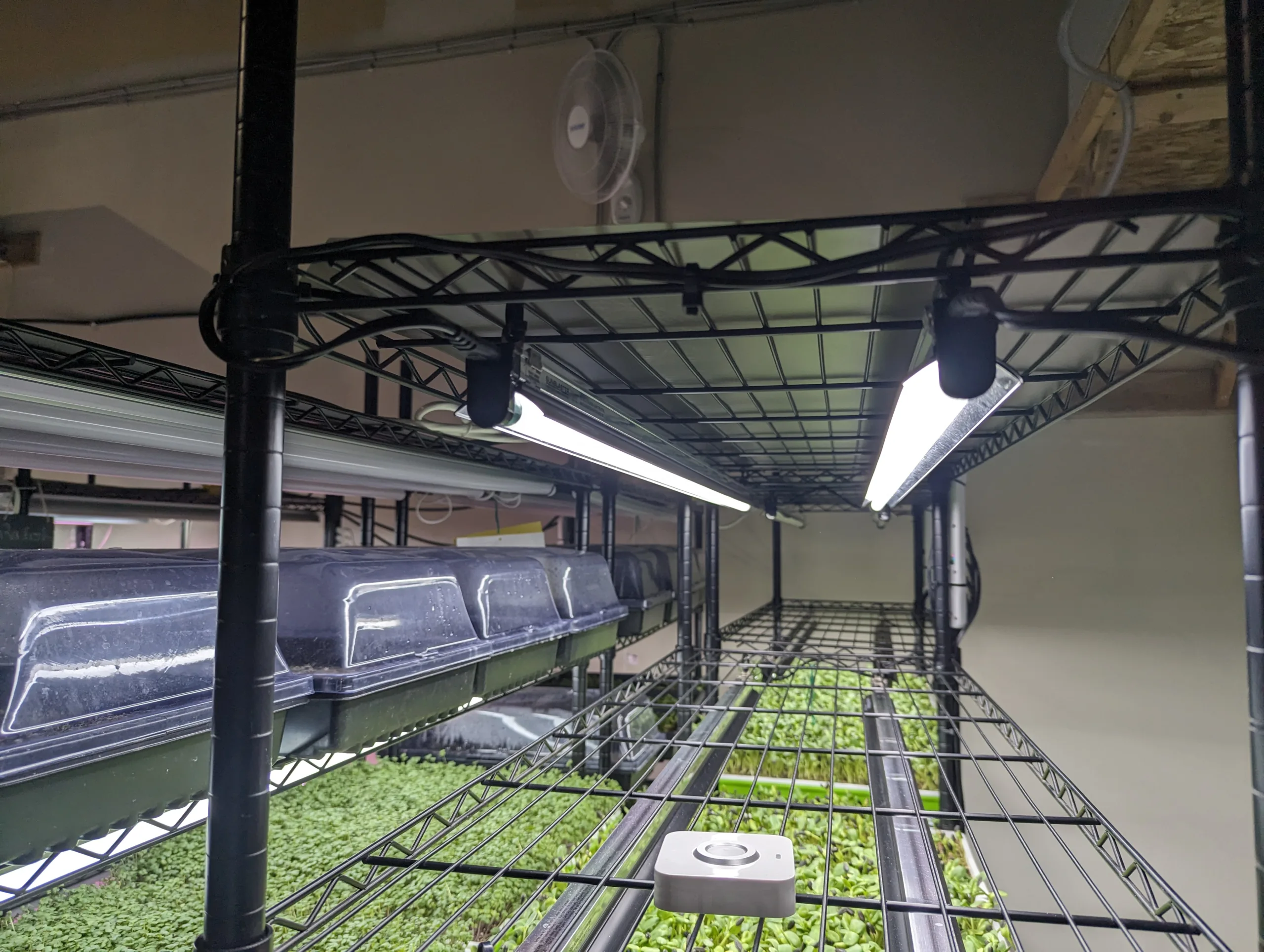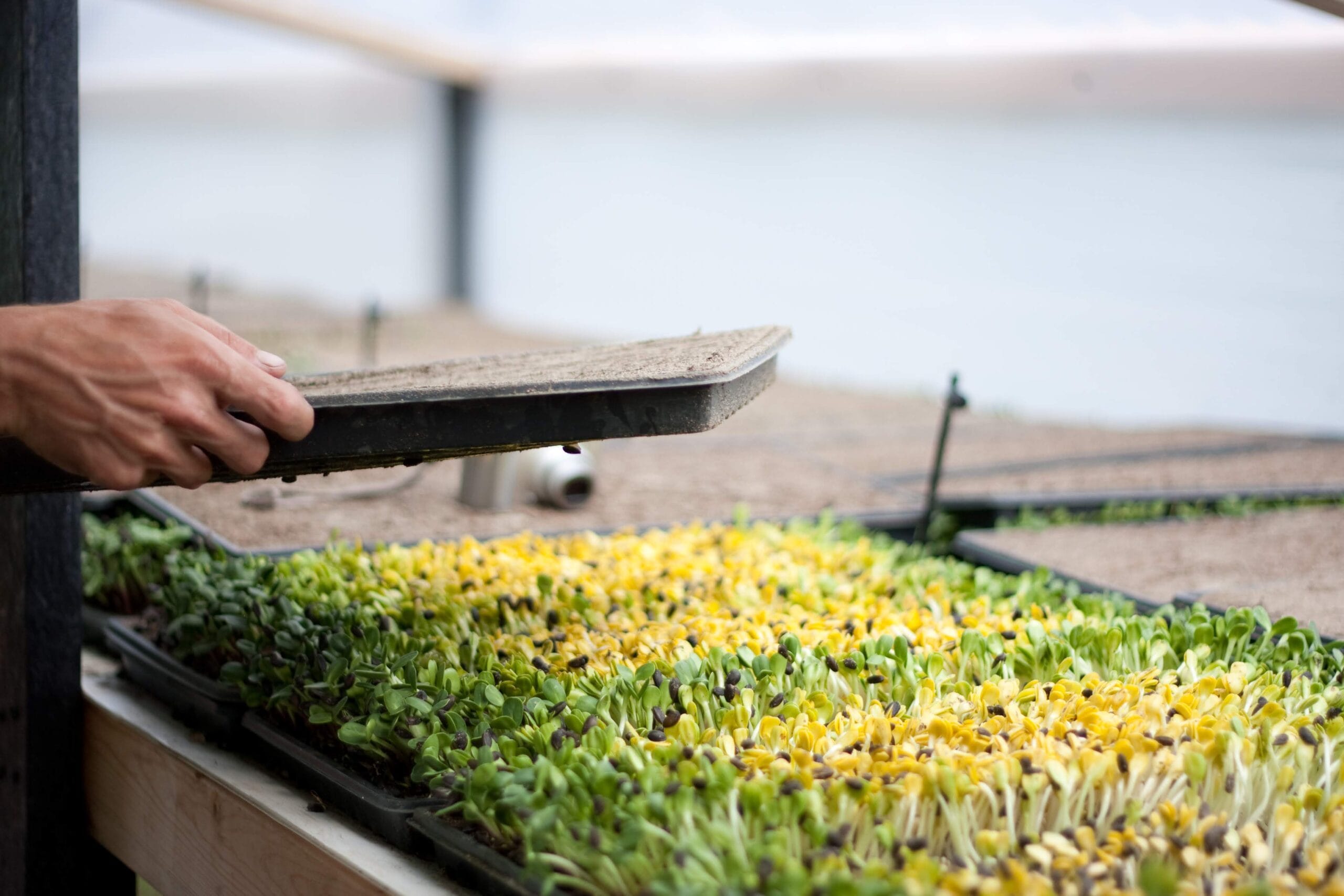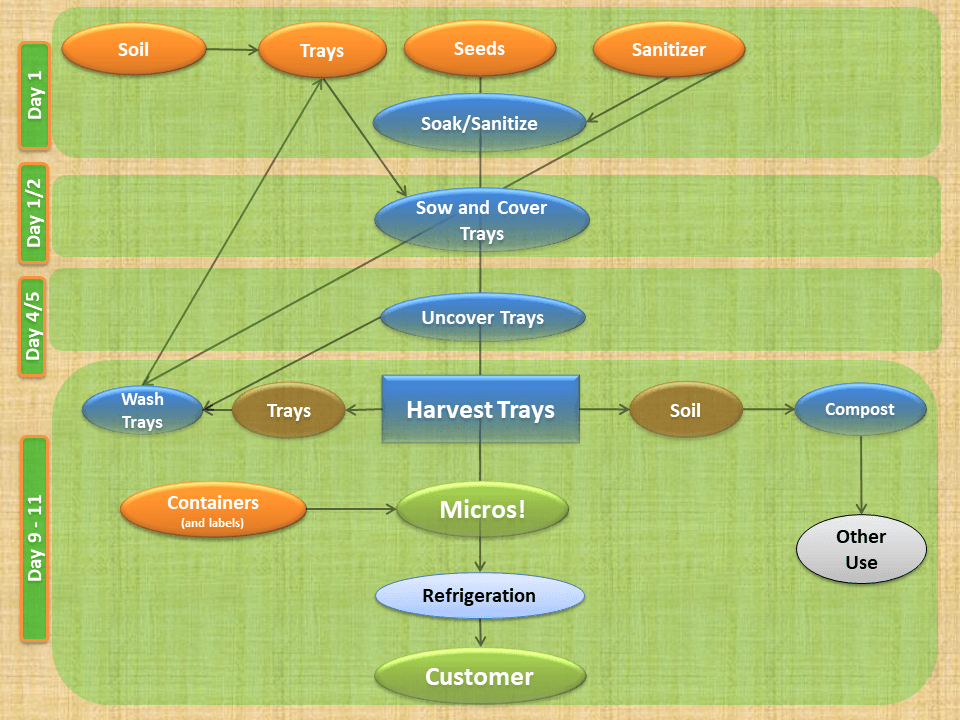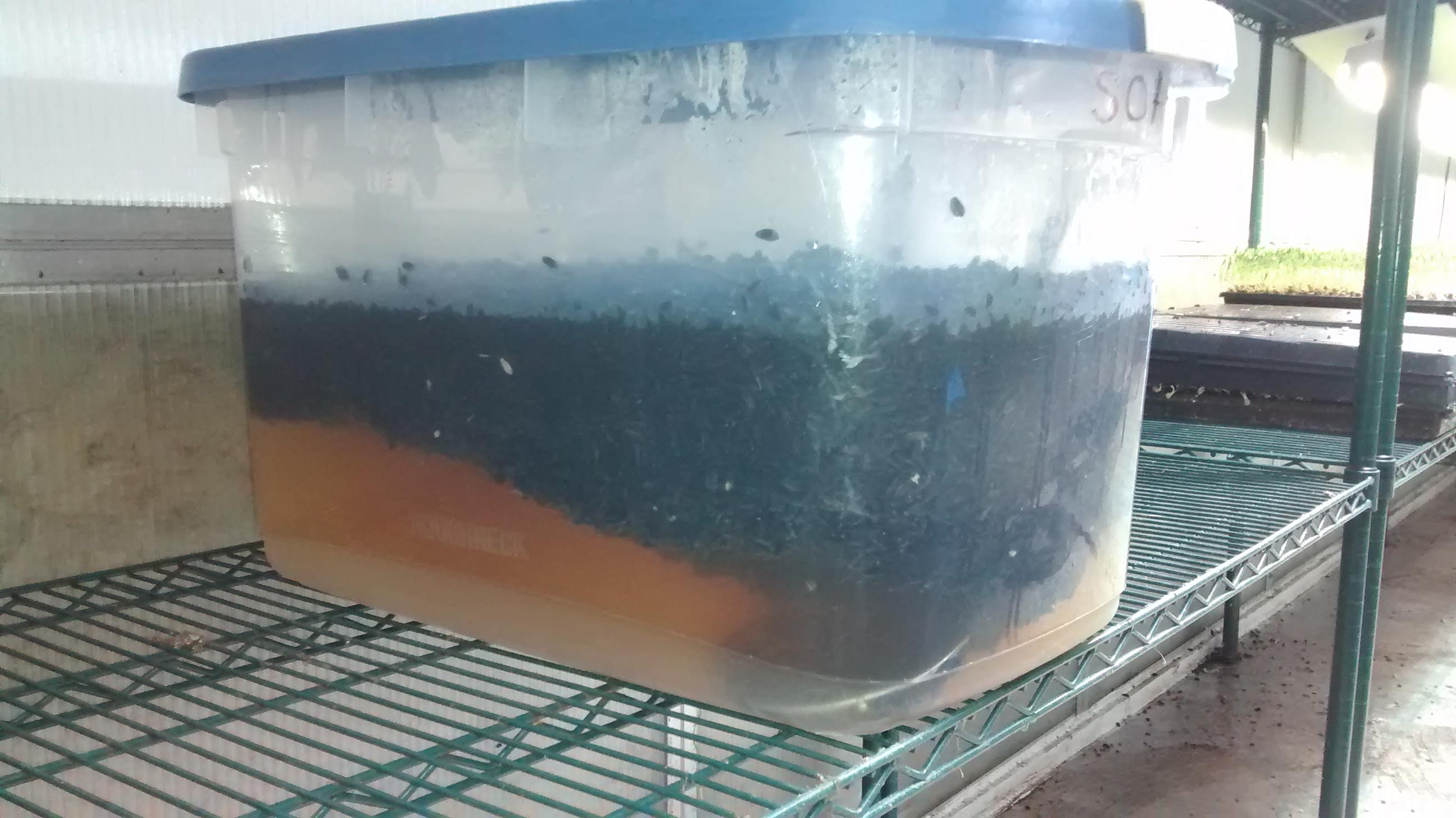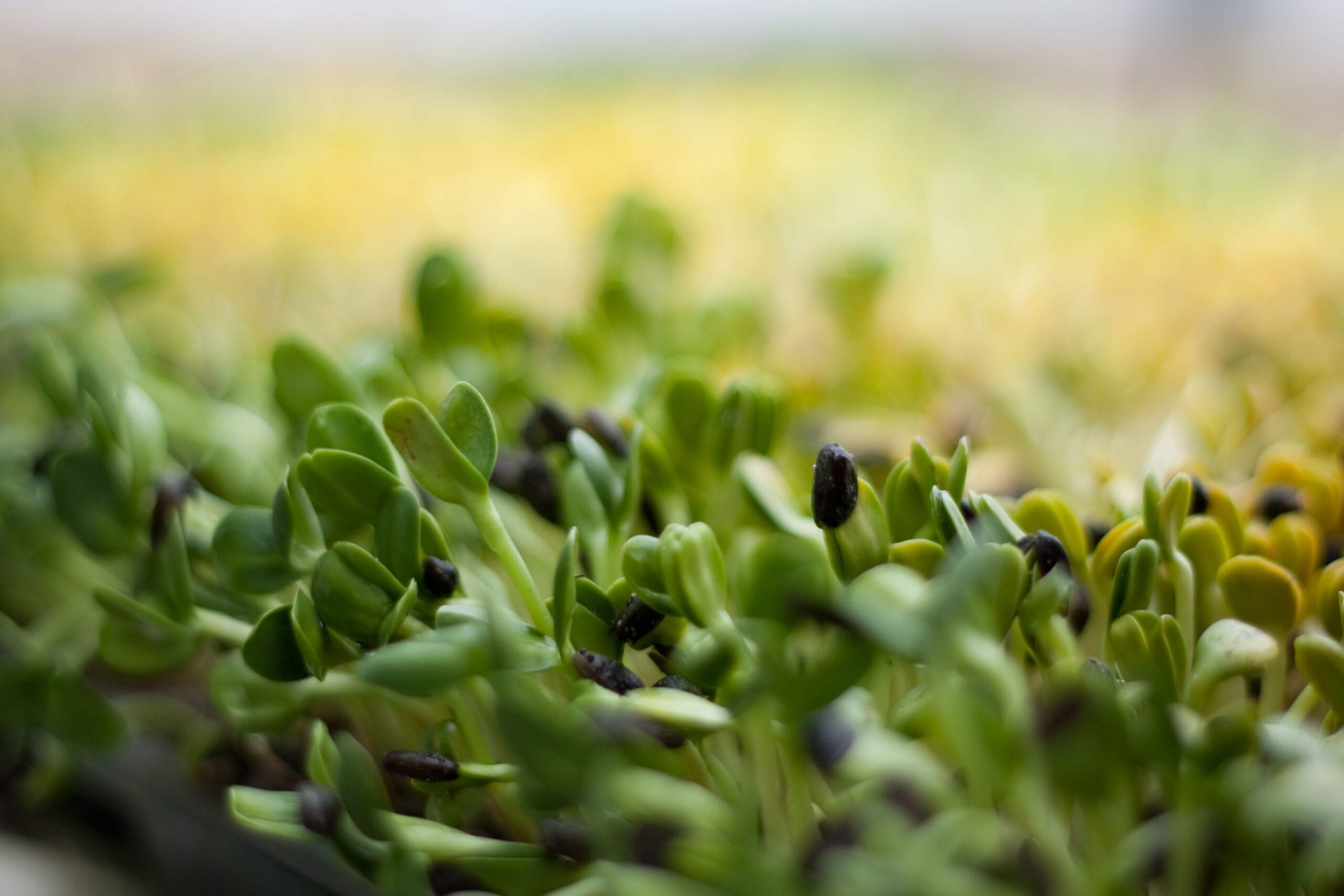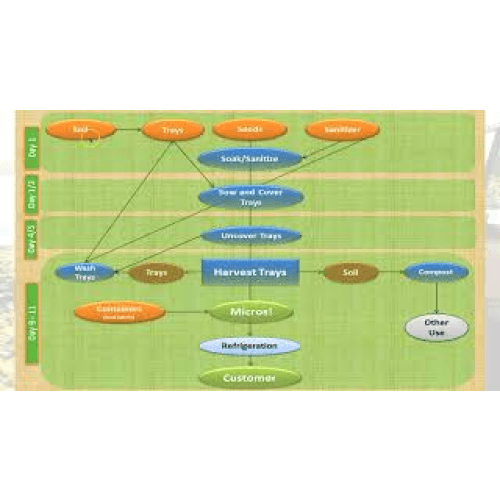Please Note: As an Amazon Associate I earn from qualifying purchases.
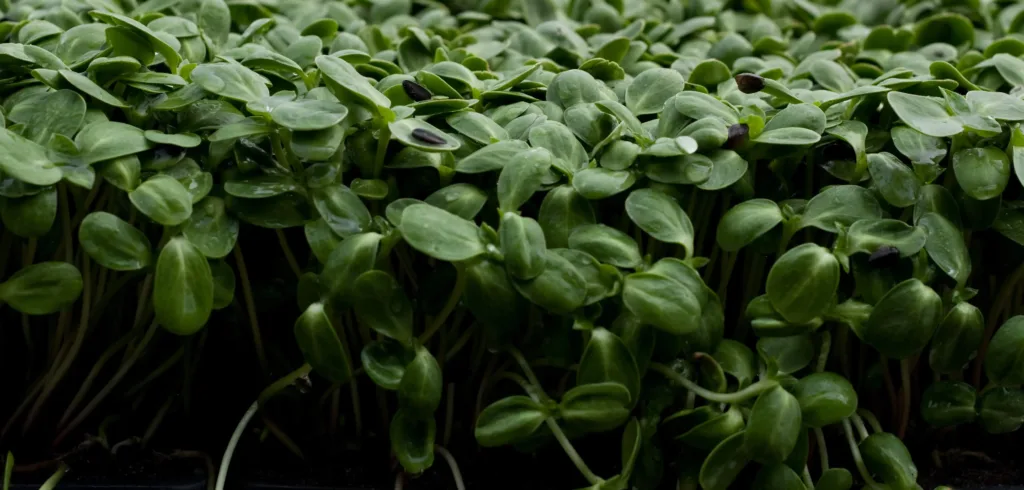
Microgreens Grower
1. Microgreens Crop Planning Principles
Introduction Microgreens may be small, but growing them efficiently requires some planning. If you’ve ever struggled to align your planting with your harvest needs—or found yourself tossing unused trays—you’re not alone. That’s where crop planning comes in. In this article, we’ll break down what microgreens crop planning is, why it matters, and how it can…
2. Building Blocks of Your Microgreens Crop Plan
Understanding and mastering the foundational elements of a microgreens crop plan is essential for consistent, high-quality harvests that meet customer demand. Whether you’re running a commercial grow or refining a home-based setup, clearly mapping out the stages, tasks, and timing will allow you to scale and succeed with less stress and more predictability. This section…
3. Growing to Order – The Smarter Way to Plan
Introduction Most new microgreens growers start by guessing how much of each crop to grow. But experienced growers know that success comes from working in reverse—starting with your customers and growing exactly what they’ve ordered. This is the foundation of growing to order, and it’s the smartest, most efficient way to plan your crop schedule.…
4. Building Your Crop Plan – Bringing It All Together
Introduction Once you’ve established your crop elements, growth stages, and are growing to order, the next step in microgreens crop planning is creating a “crop calendar” or crop plan that reflects your entire production schedule. This crop plan is essentially your operational hub. It brings together all your sowing, germination, blackout, light, and harvest tasks—and…
5. Shifting Products to Fine Tuning Your Crop Plan
Even the best microgreens crop plans will run into challenges. Trays don’t germinate evenly. Deliveries shift. New orders get added. Trays get overwatered or understaffed. The true strength of your crop plan lies not in perfection, but in how adaptable it is when things go off-track. This article focuses on “shifting products” as a strategy…
6. Just in Case – Crop Buffers
Build Crop Buffers Into Your System Resilient crop plans include room to adapt. One of the main ways we do this is through crop buffers. Buffers refer to excess crop sowed above and beyond your order needs. Here we will take look at some methods of using buffers. Buffer Trays The simplest buffer option is…
7. Microgreens Crop Planning for Farmers Markets
Balancing Flexibility with Strategy Selling microgreens at a farmers market offers a powerful mix of opportunity and unpredictability. Unlike restaurant or subscription orders, markets are spontaneous—customers vary week to week, weather impacts turnout, and seasonal rhythms shape consumer preferences. This variability makes crop planning for markets both more challenging and more rewarding. A well-structured crop…
7.0 Overview: Microgreens Production Process
In this course we finally dive into the microgreens production process! Downloadable Audio: Embedded Video:
8. Common Crop Planning Problems and How to Solve Them
Early days of crop planning can be difficult. Here are some tips and tricks to get you off to a good start when dealing with crop production and crop planning challenges. 1. Late Germination or Poor Germination 2. Overburdened Harvests 3. Missed Sowing Tasks 💡 Pro Tip: SeedLeaf, designed specifically for microgreens growers, allows you…
8.0 Overview: Microgreens Harvest, Packing, Storage, and Transport
Here we introduce the processes that follow microgreens crop growth: harvesting, packing, storage, and transport. Downloadable Audio: Embedded Video:
9.0 Overview: Microgreens Crop and Financial Planning
The importance of crop and financial planning for microgreens production is too often overlooked, but is essentially the core of the business! Downloadable Audio: Embedded Video:
Choosing the Right Microgreens Growing Space for Your Operation: A Practical Introduction
Introduction to Microgreens Growing Spaces Starting a microgreens business comes with its fair share of excitement — quick crop cycles, low startup costs, and the ability to grow nutritious food in surprisingly small spaces. But as you dig into the nuts and bolts of production, one of the first and most important questions you’ll face…
Course 3.1: Microgreens Production Process Overview
Here we take a quick look at the overall microgreens production process to give you a sense of how things look from start to finish. Downloadable Audio: Embedded Video:
Course 3.2: Microgreens Growing Conditions
In this course we take a look at the environmental conditions you need to consider when growing your microgreens, including: light, temperature, airflow, and humidity. Downloadable Audio: Embedded Video:
Course 7 6: Uncovering Microgreens Trays
Uncovering your microgreens trays takes them out of the germination stage and into the light where they can photosynthesize and put on growth. Downloadable Audio: Embedded Video:
Course 7.1: Microgreens Workflow Diagram
In this short course we check out the workflow of the microgreens production process to give you a sense of how the different stages relate to each other. Downloadable Audio: Embedded Video:
Course 7.3: Rinsing, Sanitizing, and Soaking Microgreens Seeds
Several types of microgreens seeds benefit from soaking before the sowing process to help with germination while also giving the opportunity to sanitize your seed. Downloadable Audio: Embedded Video:
Course 7.4: Sowing Microgreens Seeds
The sowing process is really what gets your microgreens crop started – so sowing properly is important for getting a successful crop. Downloadable Audio: Embedded Video:
Course 7.7: Microgreens Crop Growth
Once exposed to light, your microgreens crops will put on rapid growth and will need attention to their water, light, and airflow needs. Downloadable Audio: Embedded Video:
Course 7.8: Microgreens Workflow Diagram Review
Here we do a quick review of the microgreens workflow diagram to help put the production process in context. Downloadable Audio: Embedded Video:
Copyright 2025 by Chris Thoreau. All Rights Reserved.
